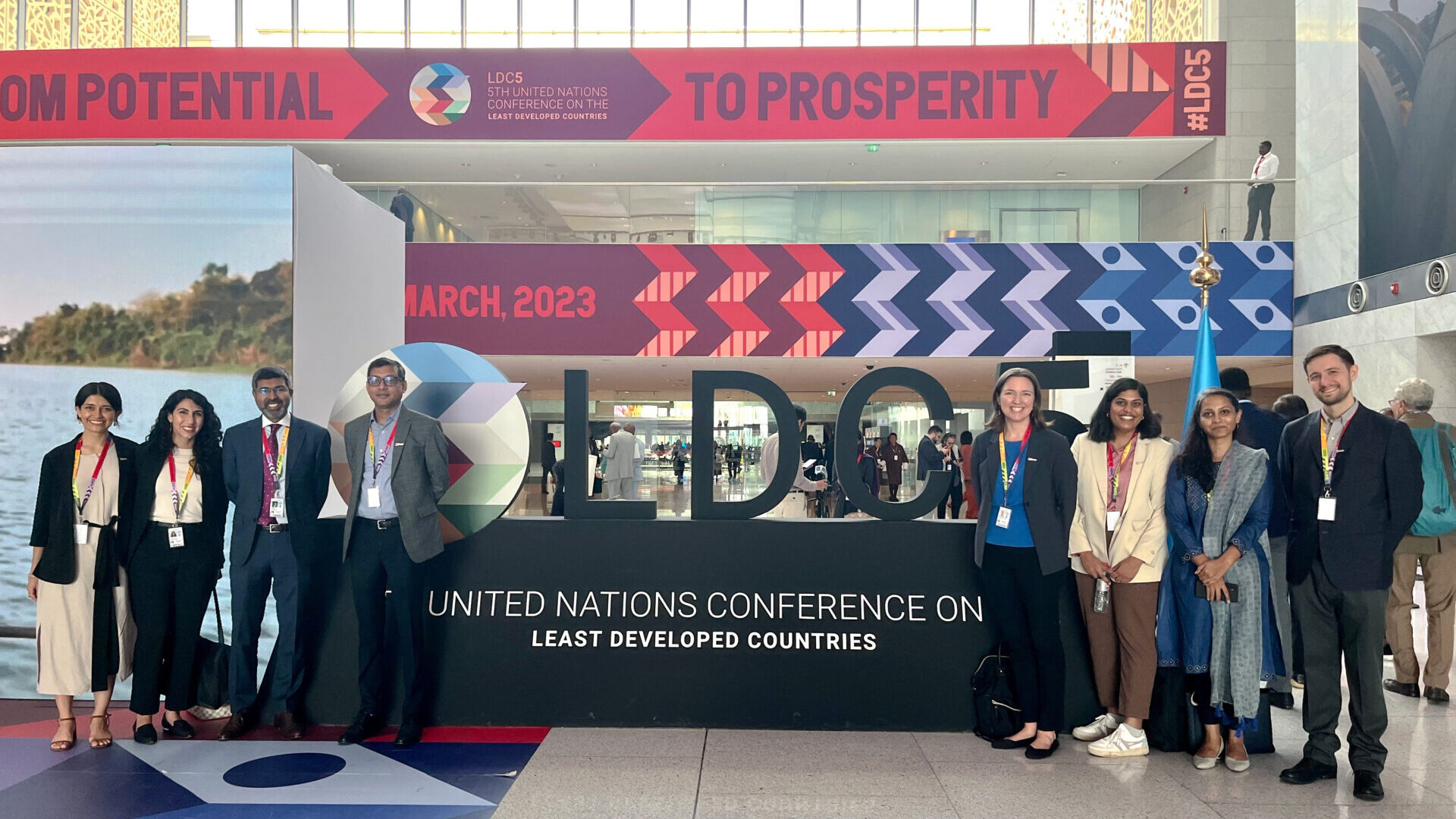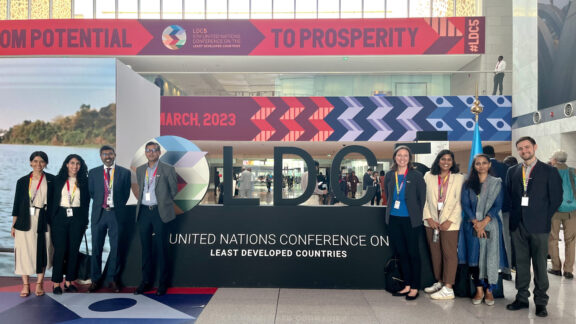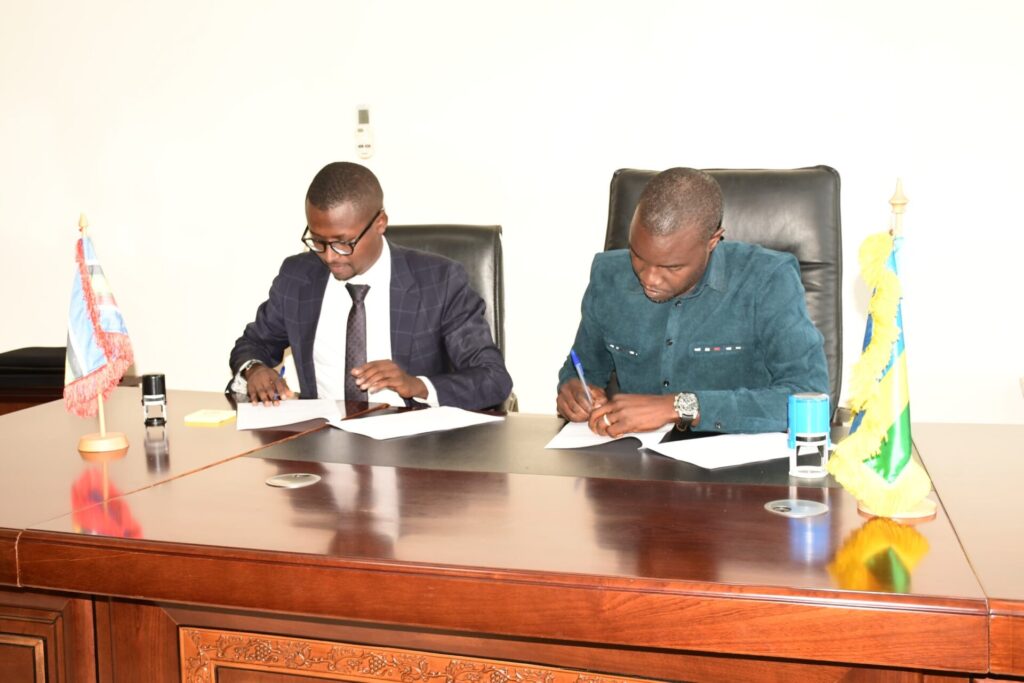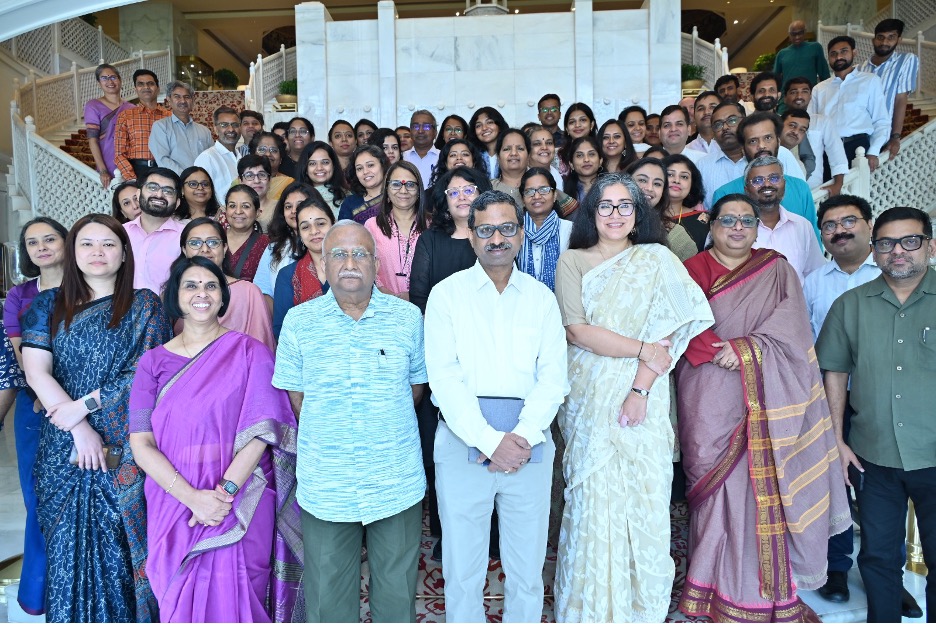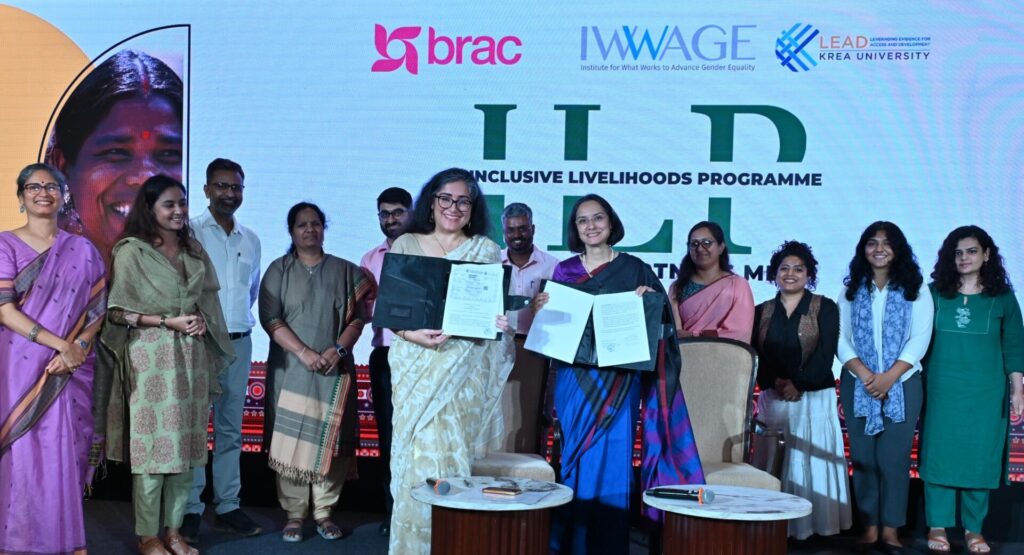BRAC International Executive Director, Shameran Abed, and other members of BRAC leadership participated in the Fifth United Nations Conference on the Least Developed Countries to emphasize the importance of investing in those furthest behind and addressing the multifaceted nature of extreme poverty. Governments, development partners, civil society organizations, and private sector partners came together to commit to delivering on the Doha Programme of Action (DPoA), a ten-year plan to put the world’s 46 most vulnerable countries on track to achieving the Sustainable Development Goals (SDGs).
Through their engagement, BRAC leadership stressed that recommitting to SDG1 – eliminating all forms of poverty – will require the prioritization of communities and individuals who have the least, are the hardest hit, and the hardest to reach. Governments are best positioned to deliver long-term impact for those in extreme poverty. Supporting government-led efforts to scale evidence-based programs will be critical to reaching those furthest behind, building resilience, and ultimately enabling households to escape the poverty trap.
“It’s really important that we really agree on what are the transformative issues and programs that we can come together and invest in,” Abed said during a SDG Action Campaign interview. “There are some specific, evidence-based programs that we’ve seen work for many years that are very successful at sustainably pulling people out of extreme poverty.”
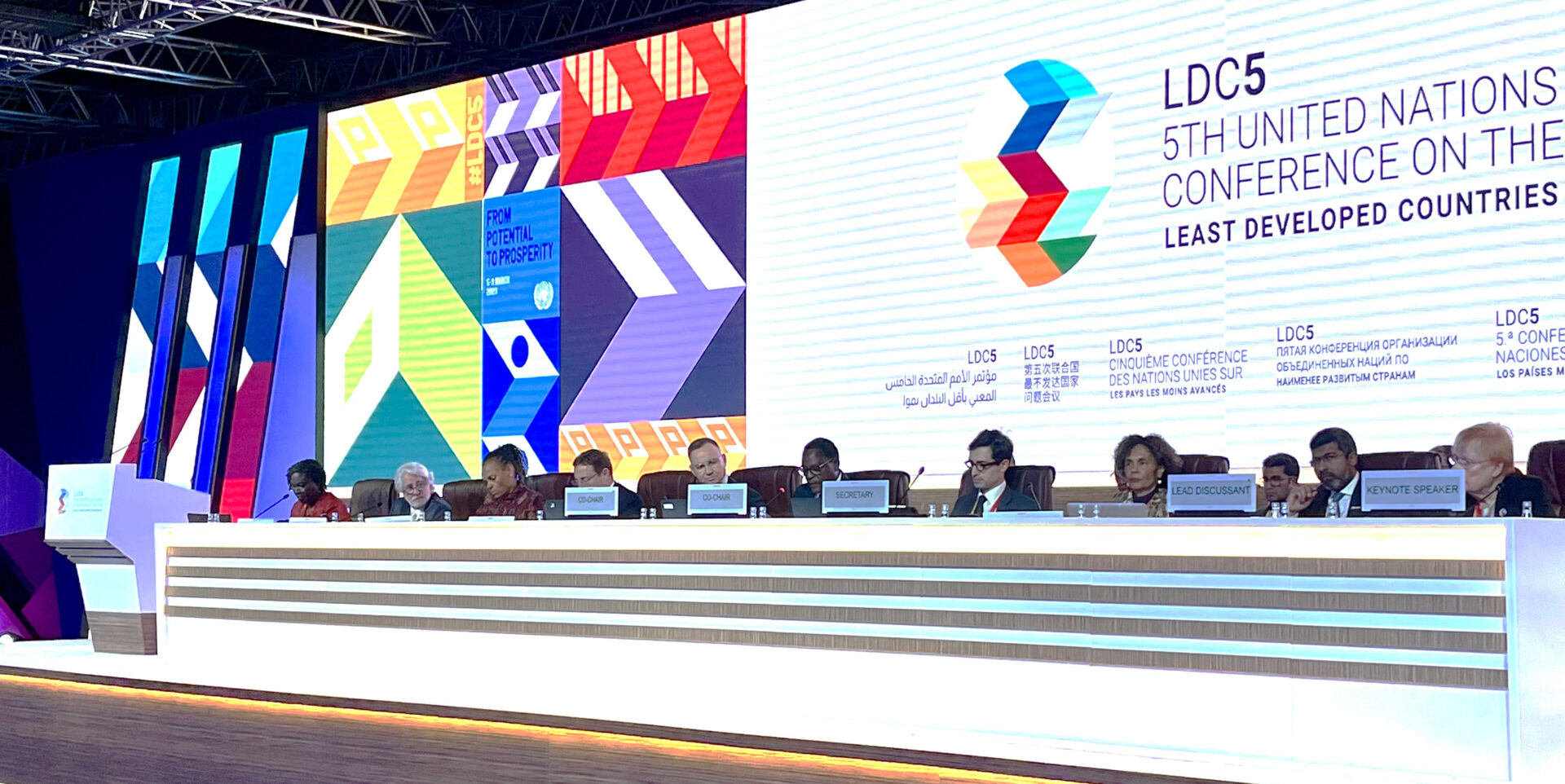
During the high-level round table, “Investing in people in least developed countries to leave no one behind,” Abed emphasized the eradication of poverty does not need to be a distant dream. Abed stated that investing in a targeted “big push” while also addressing social and economic vulnerabilities has been successful in enabling households to escape the poverty trap long-term. The Graduation approach, which BRAC International is scaling through governments to reach millions more people, is one example of a “big push” investment designed to address the complex nature of extreme poverty.
Tarja Kaarina Halonen, former President of Finland emphasized that lifting people out of poverty and creating equal opportunities require social protection – a smart investment that can provide important support for achieving the Sustainable Development Goals for everyone in society.
In addition to the Sustainable Development Goals, the goal of reaching at least 350 million people in extreme poverty in the LDCs through social protection systems in the DPoA is a critical commitment for achieving poverty eradication and inclusive growth.
“We are in a race against time to reduce the inequalities and vulnerabilities that risk leaving individuals, communities, and whole countries behind,” Halonen stated.
There was steady progress in reducing the number of people living in extreme poverty between 1980 and 2020, but with the compounding crises of COVID-19, conflict, and climate over the last three years, that number has risen for the first time in generations.
“For ultra-poor households in extreme poverty to get on a sustainable pathway out of poverty, you have to address economic and social vulnerabilities, said Abed during the Flip the Script from Potential to Prosperity side event later in the week. “This can be done through the combination of a big push investment combined with targeted wraparound services.”
Palash Kanti Das, Director of the Ultra-Poor Graduation Programme at BRAC, discussed the importance of considering the multidimensional needs of marginalized populations as he shared the example of a bamboo treatment plant in Cox’s Bazar targeting the Rohingya population during a side event hosted by the International Bamboo and Rattan Organization (INBAR).
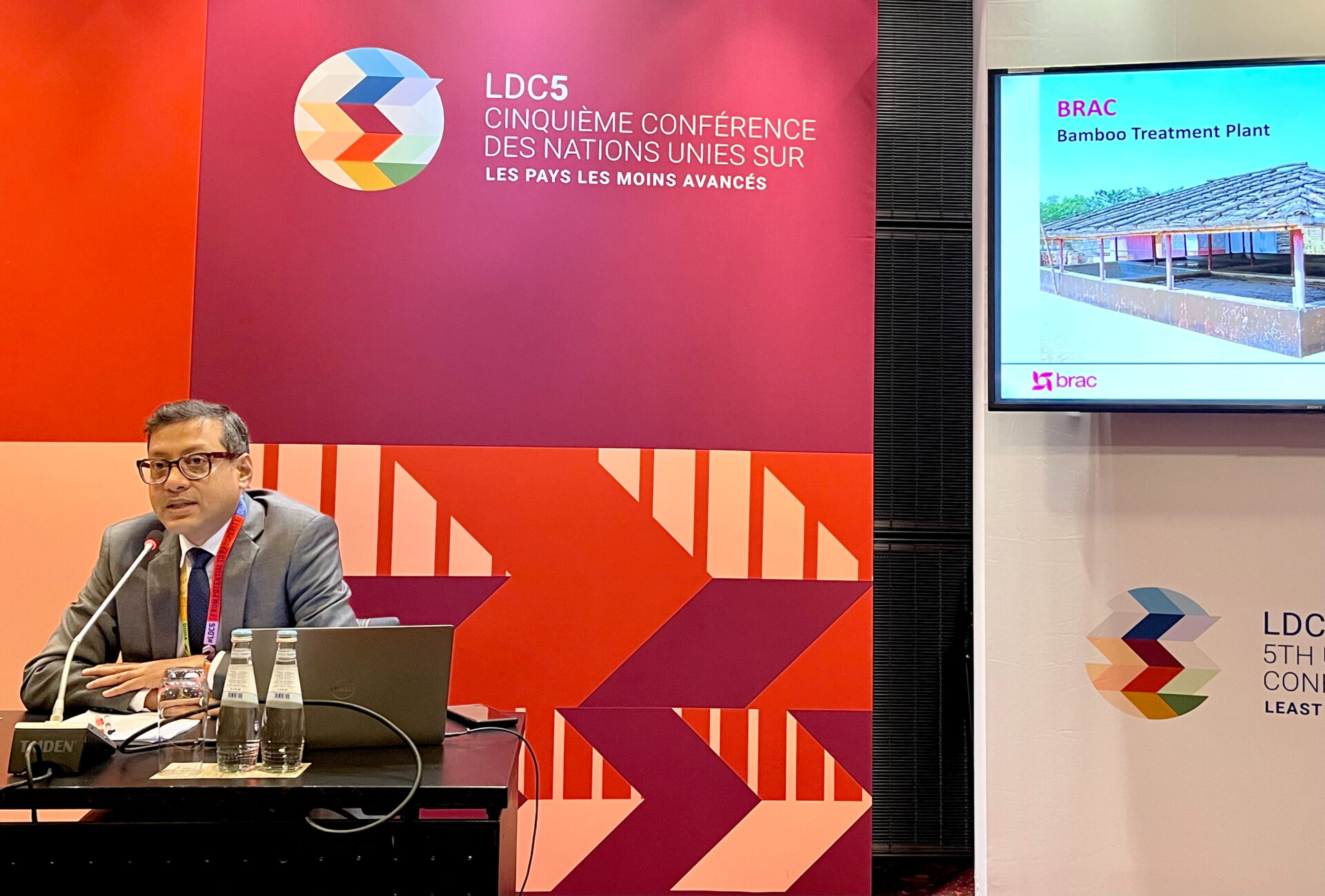
“It’s extremely important to keep in mind extremely vulnerable individuals for targeting, to take your time to really support the community,” said Das, “and to recognize that government policies take time but there should be a stronger connection between policy formulation and the actions being taken on the ground.”
Throughout the conference, Abed reiterated the need for governments to lead from the helm in combating extreme poverty. “We need to stop tinkering around the edges and find the political will to scale evidence-based programs that work,” he stated. “Governments need to invest in multifaceted approaches and scale them through cost-effective means, such as building on existing social protection systems… those living in the harshest forms of poverty require and deserve nothing less from us.”
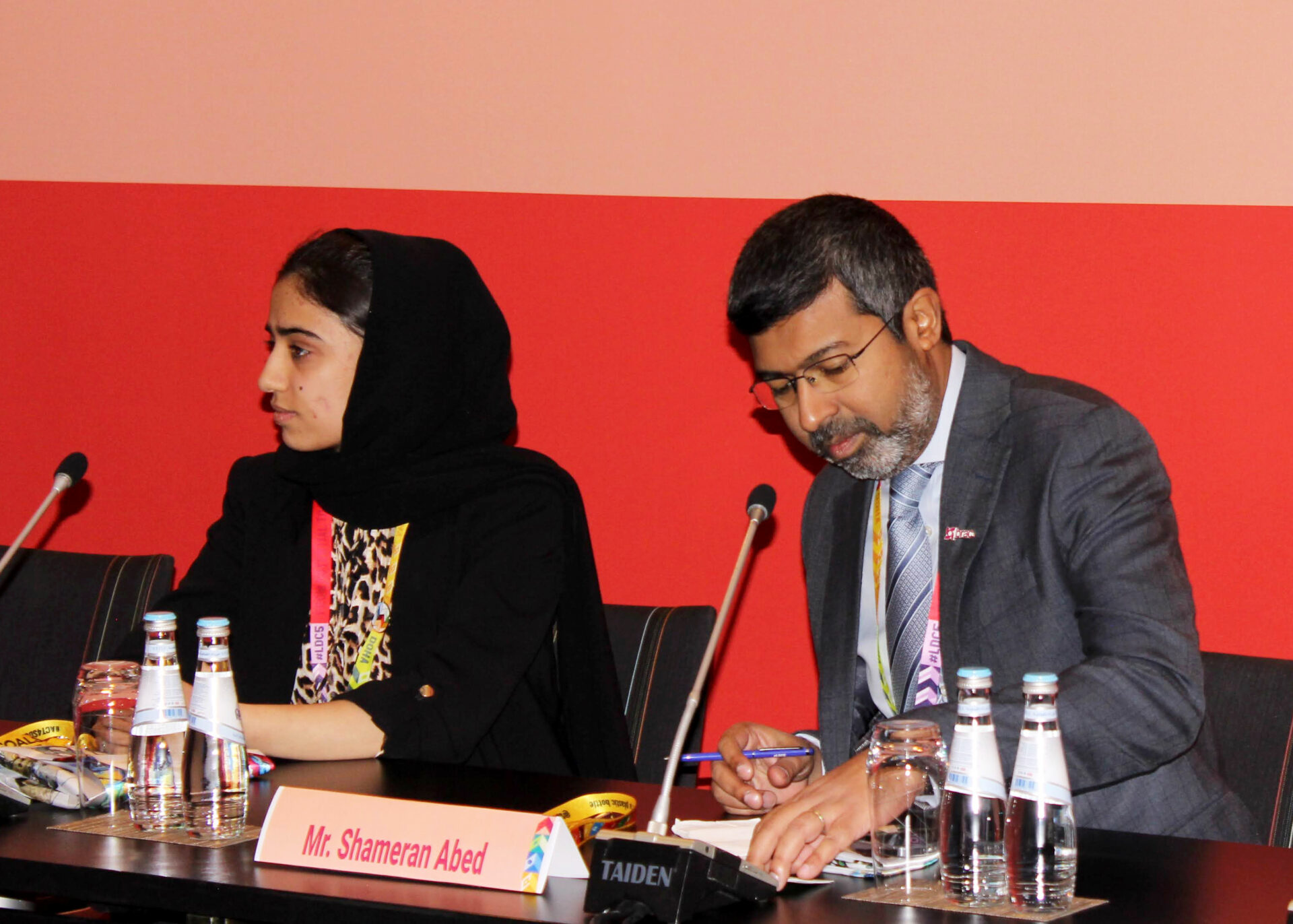
While governments have the mandate to lead efforts to combat extreme poverty, BRAC International recognizes that the international community must provide the support and resources to do this effectively. Throughout the week, BRAC met with government officials and development partners to discuss scaling efforts for evidence-based programs. BRAC also co-hosted a dinner with the United Nations Foundation to discuss how those in extreme poverty can be prioritized to ensure inclusive growth.
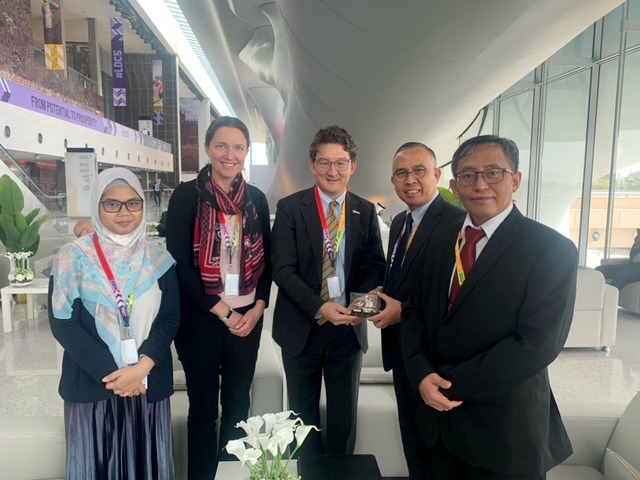
As the global community looks ahead to the SDG Summit in September 2023, it remains imperative that policymakers prioritize those furthest behind to ensure inclusive and lasting impact for those in extreme poverty. This can only be accomplished through working together and BRAC International is committed to serving as a trusted partner to support governments and development partners in these efforts.

